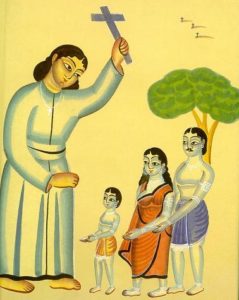
The Orthodox and Jacobites church denominations of the Malankara Syrian Church in Kerala, have been fighting for the control of 2000-odd Churches and their rich coffers for more than two decades. Following the direction of the Kerala High Court, Ernakulam District Collector, took over St. Mary Jacobite Syrian Church, Poothrikka, near Kolenchery in the district, after taking over of Mulanthuruthy and Onakkoor Jacobite churches very recently.
In its fourth intervention, since 3rd July 2017, in the century old row between the Orthodox and Jacobite factions, of Kerala’s Malankara Church dispute, the Supreme Court yesterday said in firm and clear tone that the Control of the parishes would remain with the former (Orthodox Church) as per the judgement given on that day, rejecting the plea of the Jacobite faction summarily.
It is mentionable here, the Jacobite faction sought to review the July 3rd Judgement, which gave the Orthodox group control over more than 1100 parishes and their churches. Till then both the factions had been running the day-to-day affairs of the Churches while fighting for the ownership. The earlier verdicts given in 1958, 1995 had also gone in favour of the Orthodox faction, which has 2.5 million members.
The Orthodox-Jacobite row dates back to 1912 and has led to violence and police action on several occasions. Both of them have organised and staged protests, hartals, blocked roads, stopped funeral processions. More than 300 churches have been closed as a result of litigation and violence. The Kerala ruling Government alternatively backed attempts to resolve the row, they failed.
The word Malankara is derived from the island of Malankara, where St. Thomas the Apostle first landed in India. Mar Thoma as he came to be known here, was ordained the first head or metropolitan of the Malankara Church. The patriarch of Antioch was the spiritual head of the Malankara church, but he had no control over the parish churches and properties.
Malankara Church dates back to 17th century, aftermath of two historical events, the Synod of Diamper and the Coonan Cross Oath. The Synod decree was much resisted by the locals, didn’t submit to the Portuguese dominance. This led them forcefully towards Catholicism of Latin Rite.
In the year 1912, the Malankara church split into the Malankara Orthodox church and the Jacobite Syrian Church on the question of supreme head. The Malankara orthodox church considers the Malankara metropolitan as its head while the Jacobite Syrian Church recognises the patriarch of Antioch as its spiritual head. But both the factions trace their origin to Saint Thomas. They also share the same liturgy (rites of worship), administrative structure, both their heads hold the title of Catholics.
It is said that there are no differences between the factions on religious practices. It is believed power and money caused the vertical split in the church. The orthodox faction was afraid of the patriarch of Antioch’s influence. The real bone of contention is the autonomy, while Orthodox Church maintained it was an Indian church where the patriarch of Antioch had no claim on temporal assets. To this effect the Malankara church Association had elected representatives of priests and laity from all the churches. It had clearly stated that the, Malankara Metropolitan is the Head of the Churches.
In its verdicts in 1958, 1995, 2017 and earlier this year the Supreme Court observed that the 1934 Constitution of Malankara was appropriate for the management of the parish churches. According to the Orthodox faction, it is a democratically drafted constitution. That might be the reason for the Supreme Court to cite the 1934 Constitution in all the 3 verdicts. It is the Magna Carta of the Malankara Church.
This dispute is not expected to end any time soon. Both the churches are functioning as parallel entities as it is not easy to end their activities all of a sudden. At the same time, the court has also observed that in no uncertain terms it was not possible to have parallel churches. It is felt that, let better sense prevail for both the factions to come together and function as a joint entity.
This dispute is sure to go a long way, as Jacobites would find it difficult to remain independent as they don’t have the finances to remain alone. Though the Jacobite faction are ready for peaceful co-existence, the catch being that the Orthodox faction should accept the authority of the patriarch of Antioch. In the name of God, let peace prevail.

